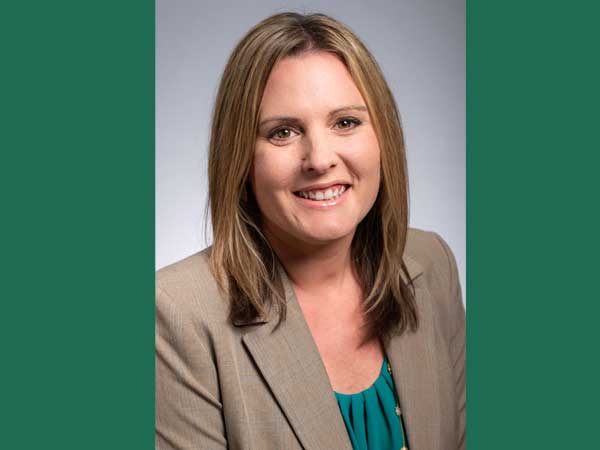 Redemption Earned, an Alabama-based nonprofit, has appointed UAB Assistant Professor of Occupational Therapy Sarah Tucker, PhD, OTR/L, to its board of directors. The organization provides services to incarcerated individuals and seeks release for those who should no longer live behind bars.
Redemption Earned, an Alabama-based nonprofit, has appointed UAB Assistant Professor of Occupational Therapy Sarah Tucker, PhD, OTR/L, to its board of directors. The organization provides services to incarcerated individuals and seeks release for those who should no longer live behind bars.
Dr. Tucker began working with Redemption Earned early this year as a volunteer consultant, assessing potential clients and recommending steps to help them successfully reintegrate into society. As a board member, she will assist with program planning, development, and evaluation through the eyes of an occupational therapist (OT).
“I’m passionate about advocating for role of OTs in breaking the cycle of incarceration in our communities, and I’m honored that Redemption Earned sees its value,” she said. “OTs in other parts of the country and the world are key players in this space, but it continues to be an emerging practice area for our profession, especially in the Deep South region.”
OTs’ role in prevention and reintegration
Alabama’s incarceration rates are among the highest in the United States and the world. Yet the state has limited programs and resources for preventing at-risk individuals from entering the criminal justice system or providing rehabilitation to those who do. OTs have the training and skills to help break this cycle for individuals and communities.
“We can assist at-risk youth and families through trauma-informed care and interventions that support meaningful occupations and healthy social participation,” Dr. Tucker said. “We can also develop and evaluate programs that divert people from ending up or staying in the system.”
Dr. Tucker, a fellow in UAB’s Social Science and Justice Research pilot initiative and director of the university’s Post-Professional OTD program, noted there are many individuals in prison with ongoing health conditions.
“Most are not receiving traditional OT to help them regain or maintain their independence or decrease pain,” she said. “OTs also work with individuals who have conditions such as depression, anxiety, and substance abuse, but practitioners are not yet positioned to meet the mental health needs of those inside of prisons.”
About 97% of incarcerated individuals are eventually released into the community. Without the resources to address their health issues and help them obtain meaningful employment and build healthy relationships and routines, many end up back in the system.
“Occupational therapy can help improve these re-entry outcomes in many ways,” Dr. Tucker said. “OTs from UAB have partnered with a number of community organizations that focus on re-entry, and hope we can continue to grow these opportunities.”

